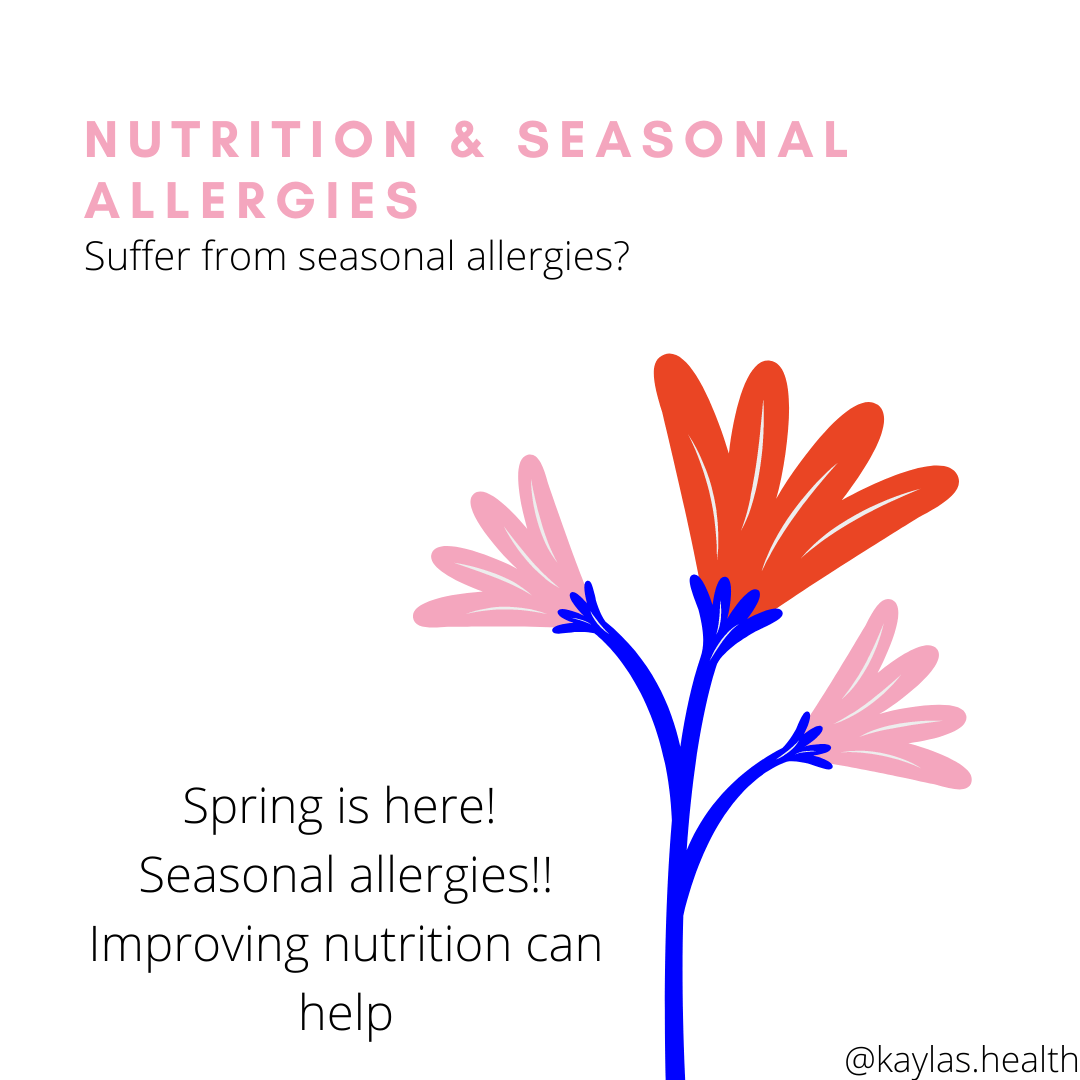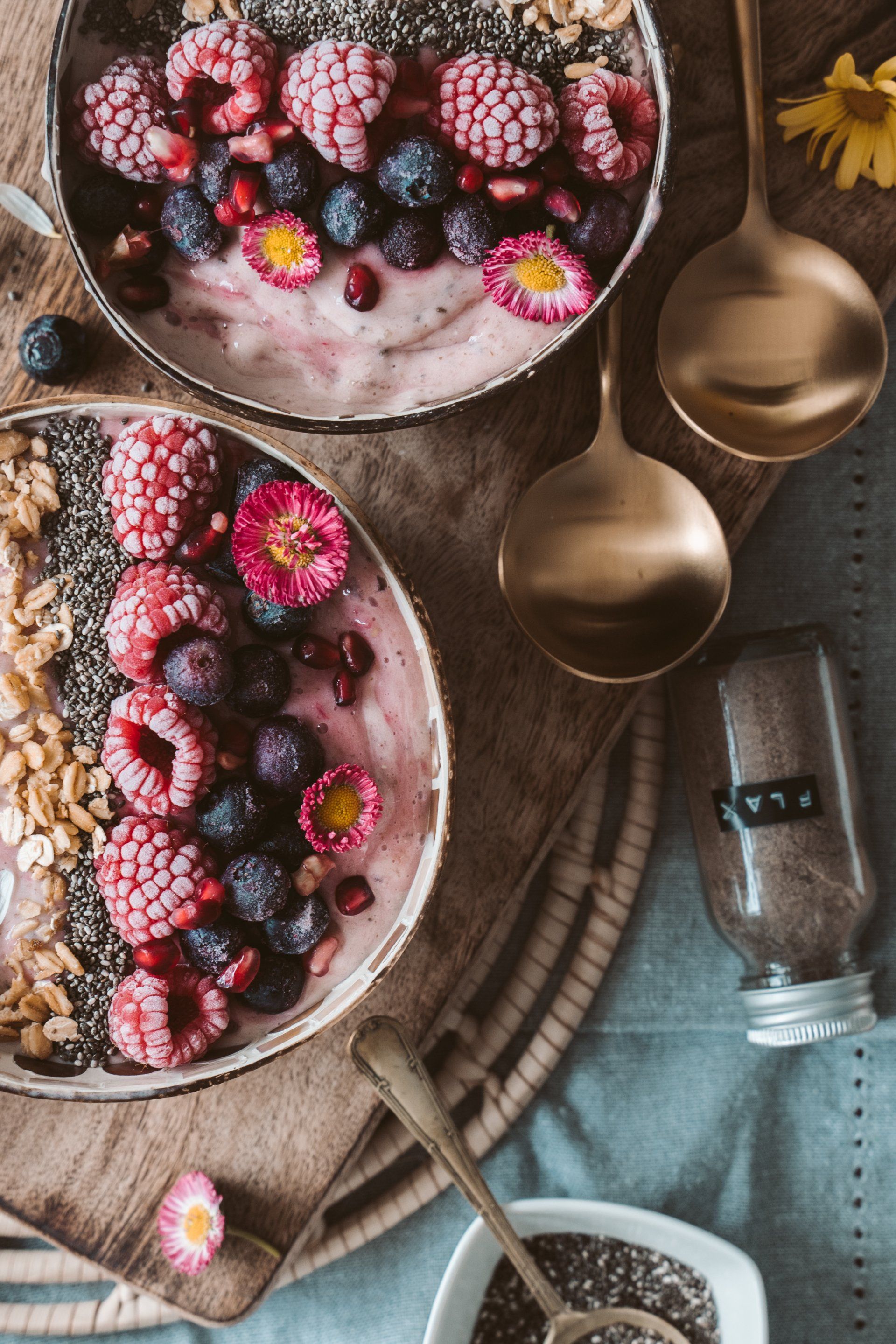Nutrition & Seasonal Allergies
Kayla Castle • April 7, 2021
Spring is here, meaning seasonal allergy season is coming!

Improving your diet and nutrient intake can help to reduce the effects from seasonal allergies. If you suffer from seasonal allergies consider increasing your intake of natural anti-histamine and anti-inflammatory rich foods. Boosting the immune system and decreasing the release of histamine from mast cells. Plus, check out the foods to avoid during allergy season
Ginger, anti-inflammatory full of phytochemical compounds that can lower pro-inflammatory proteins lessening seasonal allergy symptoms.
Anise, horseradish and mustard are natural decongestants, help to clear up nostril congestion by stimulating mucosal cilia.
Turmeric, an anti-allergic inhibits histamine release from mast cells.
Vitamin C is the way to-go
Vitamin C is a natural antihistamine. Specifically, research shows foods high in vitamin C can decrease seasonal allergy from pollen irritation in the upper respiratory tract. High vitamin-C foods include; limes, lemons, oranges, bell peppers, grapefruit, tomatoes, broccoli and Brussel sprouts.
Probiotics are a must
I am a big supporter of probiotics and I take a probiotic supplement every day. Probiotics support the immune system’s ability to fight against inflections providing anti-allergic effects. Sauerkrau, kimchi, kefir and yogurt are all good probiotic sources.
Bees can help
There has been growing evidence that consuming honey local to your area helps build up your body’s resistance to the pollen local to your area.
It’s getting fishy up in here
Fatty fish is filled with omega-3 fatty acids that can help fight allergy inflammation. Salmon, mackerel, tuna, and sardines are all good options.
Bioflavonoids are quercetin superstars
Quercetin is a powerful anti-inflammatory and antihistamine that can stabilize mast cells, reducing histamine release. Quercetin foods include broccoli, green tea, asparagus, apples, onions are red wine.
What to avoid?
Peanuts
Refined sugar
Highly processed foods
Beer
Foods high in salt

You know when you eat something sweet and then later in the day you start feeling sluggish and tired? That sugar crash feeling is from a sharp rise in blood sugar levels followed by a decline. Having consistent blood sugar levels provides us with a consistent energy boost. By structuring our meals in a balanced pattern, you will be less likely to experience a “sugar crash”.





































































































